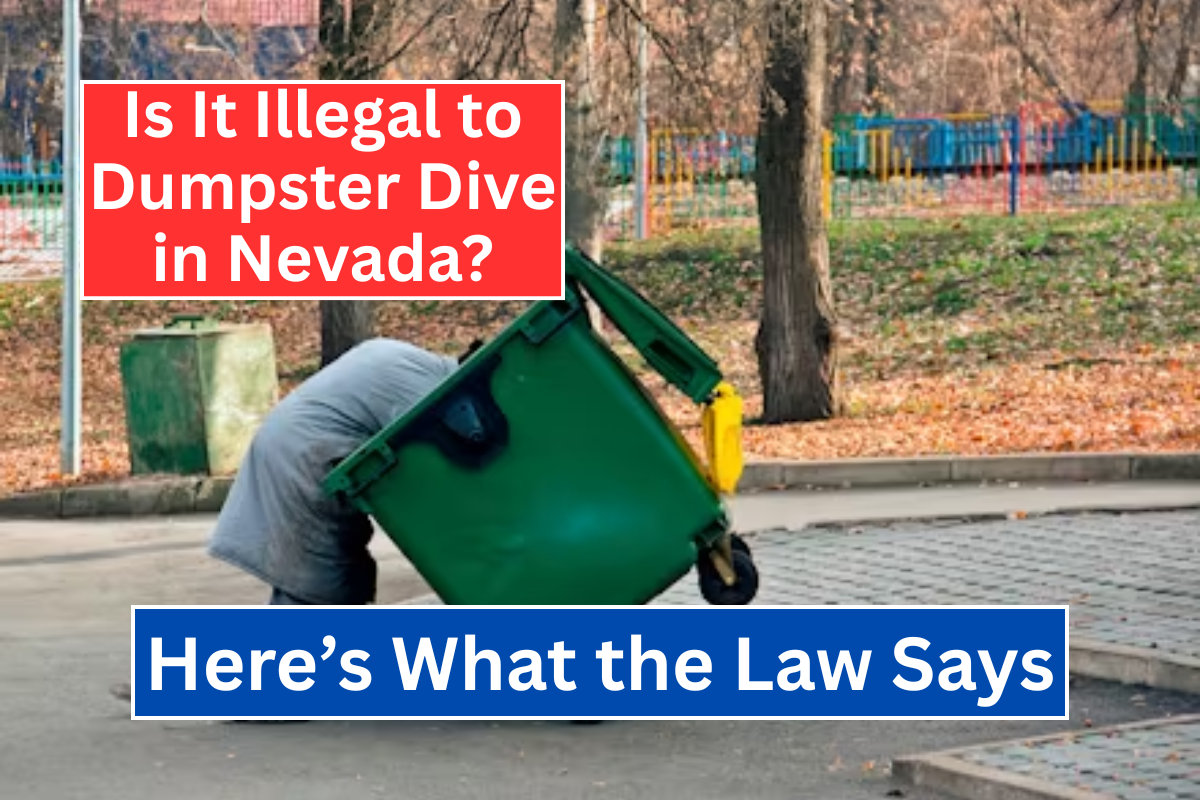Dumpster diving means going through other people’s trash to find items you can use or sell—or worse, to steal personal information.
People do this for various reasons, but it can pose serious risks, both legal and personal. Let’s explore what the law in Nevada says about dumpster diving and how you can protect yourself.
What Is Dumpster Diving?
Dumpster diving is when someone sorts through trash bins or dumpsters to pick out useful items. It might be food, clothing, electronics, or even paper documents. Some people do it to make money, others for survival, and some do it to steal personal data.
If someone finds your old medical forms, bank statements, credit card bills, or even handwritten signatures, they can use those to commit crimes like identity theft. That’s why shredding and properly disposing of sensitive paperwork is so important.
Is Dumpster Diving Illegal?
At the federal level, Nevada follows the general rule: once you throw something into a public trash bin, you lose ownership and any expectation of privacy. So, if the trash is on a public curb or sidewalk, it is usually legal to go through it.
But there are catch:
- If the trash is inside a dumpster on private property (like behind a store or mall), searching it could count as trespassing or theft.
- Many private businesses lock their dumpsters or post “No Trespassing” signs; ignoring those could land you in legal trouble.
- Even if dumpster diving itself is legal in public spaces, using anything you find—like someone’s bank details or social security number—for identity theft is a serious crime and is punishable by law.
The Role of Local Rules
Nevada law doesn’t make dumpster diving automatically illegal. But county or city ordinances might. You should check rules in your town before you dive. Some places ban or restrict trash scavenging on public streets too.
Why Do People Dumpster Dive?
People dive into dumpsters for many reasons:
Food: Plenty of good food gets thrown away in restaurants and stores.
Electronics: Broken or outdated phones and gadgets are often discarded.
Clothes: Stores and thrift shops toss out unsellable or excess clothing.
Recyclables: Cans, bottles, scrap metal—all of these have cash value if returned or recycled.
Some do it because they need help; others do it to sell items for extra income.
Is Dumpster Diving Trespassing or Disorderly Conduct?
Yes, it can be. If you enter private property without permission—even if the dumpster is unlocked—you could be charged with trespassing.
If you make a scene in a public place while rummaging through trash, authorities might consider it disorderly conduct, which could also result in a fine or arrest. Leaving trash scattered around may lead to littering or illegal dumping charges.
Do Dumpster Rules Apply to Recycling Bins?
Yes. Taking items from recycling bins can be considered theft. If those bins belong to a business or municipality, removing contents without permission could lead to fines or arrest.
How to Protect Yourself
Preventing dumpster diving crimes is easier than dealing with identity theft later:
Shred sensitive papers like credit card mail and medical bills.
Only put out trash when needed and bring bins inside after pickup.
Watch for people acting suspiciously around your bins.
Report suspicious activity to the police or trash services.
For Business Owners
If you run a restaurant or shop, consider donating unsold food instead of trashing it. The Good Samaritan Food Donation Act protects donors from liability—even for food near its expiry—when given to nonprofits.
What If You’re Charged?
Facing legal charges for dumpster diving? It’s smart to talk to a criminal defense lawyer in Nevada. They can guide you and talk to prosecutors on your behalf. Services like LegalMatch connect you with local attorneys who understand these issues and can help you at no upfront cost.
What If You’re Charged?
Facing legal charges for dumpster diving? It’s smart to talk to a criminal defense lawyer in Nevada. They can guide you and talk to prosecutors on your behalf. Services like LegalMatch connect you with local attorneys who understand these issues and can help you at no upfront cost.
Dumpster diving in Nevada isn’t always illegal—especially when it involves public trash. Yet, it can become unlawful if you enter private property, disturb public peace, or use what you find to commit crimes.
To stay safe: shred documents before tossing them, follow local regulations, and ask permission before rummaging through anything private.












